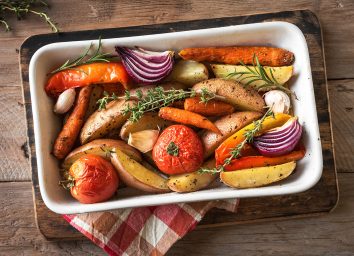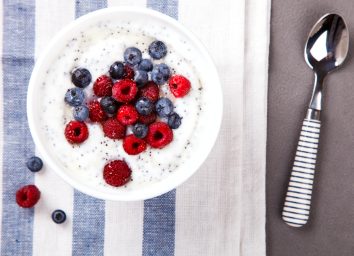4 Best Fruits To Slow the Aging Process

Want to be healthier and look and feel younger? You can! There’s a lot you can do to make that happen, including changing your diet, but let’s be realistic—a blueberry is not a magic anti-aging pill that’s going to reverse years of eating fast food, not getting enough sleep, smoking cigarettes, and sunbathing at the beach.
Although a large body of scientific research suggests certain foods, like blueberries, have anti-aging potential over time, we can’t expect to reverse the classic symptoms of aging (like crow’s feet, belly fat, and heart disease) at the snap of our fingers or by popping a blueberry.
To slow aging, we first need to understand what aging is and how it happens. It all starts at the cellular level. Our cells—the building blocks of our body—are constantly dividing, and when they do, they get a little older and more exposed to damage.
“As we age, there is increasing harm to our DNA, and, eventually, the damage surpasses the body’s ability to repair itself,” explains endocrinologist and anti-aging medicine pioneer Florence Comite, MD, founder of the Comite Center for Precision Medicine & Heath and the age-reversing app GroqHealth.
This cellular damage is what makes our skin wrinkly, our hair thinner and grayer, and our bodies prone to those serious disorders and diseases associated with getting older.
The good news? “Our genes are not our destiny,” says Dr. Comite. In short, it’s very possible to slow the aging process—and even reverse it—by assessing your health trajectory based on your family health history, lifestyle practices, and cellular health.
One intervention that will be part of any stay-young plan is eating more fruits and vegetables.
A 2021 study by Harvard researchers pinpointed just how many servings of produce you should eat daily to increase longevity. Researchers analyzed 30 years’ worth of nutrition data from more than 2 million people. The meta-analysis found that people who ate five servings of fruits and vegetables (2 servings of fruit and 3 of vegetables) daily had a 13% lower risk of death from all causes, a 12% lower risk of death from heart disease and stroke, 10% lower mortality from cancer, and 35% lower risk of dying from respiratory illnesses.
Eating more fruit is one of the easiest lifestyle changes you can make to improve your chances for a longer health span. Here’s why and the four best types of fruits to eat to support that goal, according to science.
Blueberries
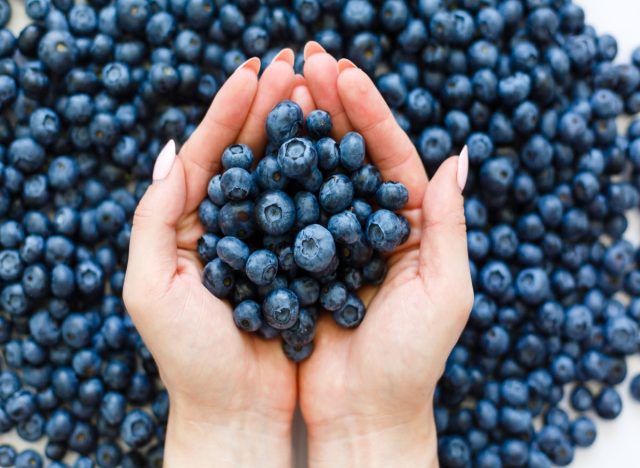
Blueberries are one of the richest sources of anthocyanins, phytochemical compounds that give fruits and vegetables their blue, purple, and, red coloring and are effective antioxidants that fight the free radicals that damage cells.
Some studies have shown that the nutrients in blueberries have the ability to repair damaged DNA and modulate genes associated with longevity. The combination of anthocyanins and dietary fiber in blueberries may also help reduce insulin resistance, lower triglycerides, and reduce the risk of Type 2 diabetes, according to research in Current Developments in Nutrition.
What’s more, studies suggest that eating blueberries regularly may improve cognitive performance. And laboratory studies on roundworms showed that blueberry polyphenols slowed aging-related declines and increased lifespan, benefits that researchers suggest may be applicable to humans.
Apples
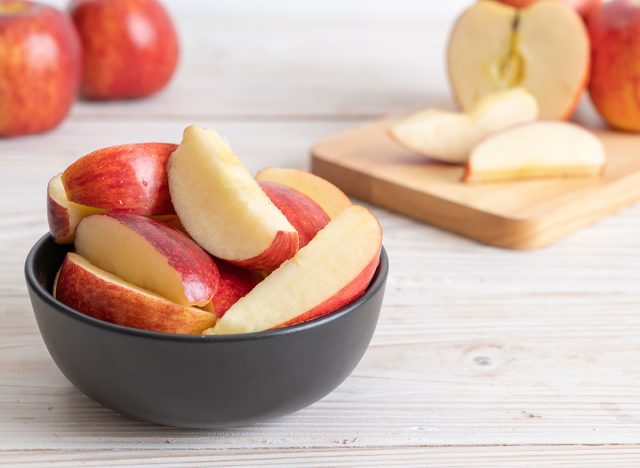
It may be true what they say about an apple a day. After all, nutrition research has consistently associated eating apples with a host of health benefits. One review in Advances in Nutrition, for example, noted that eating apples regularly may reduce the risk of age-related diseases such as cardiovascular disease, cancer, and Alzheimer’s disease.
Grapefruit
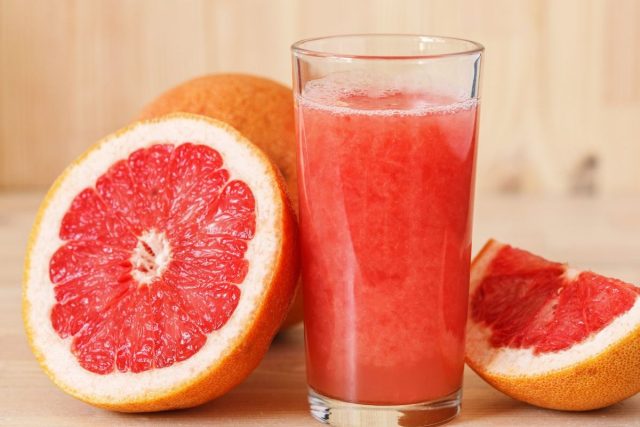
Grapefruit is rich in a host of healthy nutrients like vitamin C, inflammation-fighting magnesium, blood-pressure-lowering potassium, and dietary fiber. But its greatest health benefit may be its ability to combat the cluster of cardio-metabolic disorders linked to being overweight. As you age, your risk of being overweight increases; therefore, incorporating a fat-fighting fruit such as grapefruit in your diet is a great anti-aging tool.
One study found that participants who ate half of a grapefruit with each meal lost 3.6 pounds over the course of the 12-week experiment. And an analysis of data from the famed National Health and Nutrition Examination Survey (NHANES 2003-2008) found an association between grapefruit consumption and conditions that reduce cardiovascular disease risks, such as lower body weight and body mass index, smaller waist circumference, lower triglycerides and the inflammation marker C-reactive protein, and higher “good” HDL cholesterol.
Pomegranates
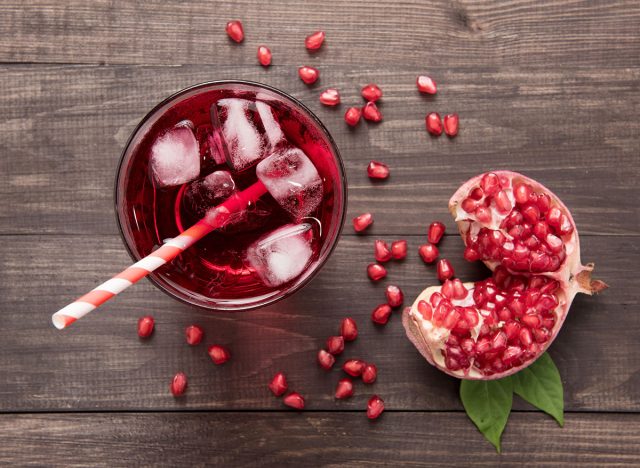
Pomegranate juice and the fruit’s pink seeds are rich in potassium, a mineral associated with a reduced risk of stroke due to its ability to keep blood pressure in a healthy range.
Pomegranates are also a bountiful source of flavonoids and polyphenols with strong antioxidant and anti-inflammatory properties. Some studies suggest those antioxidants may help reduce the prevalence of age spots and wrinkles. In one rodent study, researchers found that dried pomegranate juice applied to the skin of hairless mice protected them against sun damage. In other research, pomegranate juice appears to extend the lifespan of mice and other tiny animals.
Of course, that doesn’t mean it will do the same for a much bigger animal like you. Extending your health span to match your lifespan, as Dr. Comite suggests, requires a holistic approach in which eating specific foods is but one important component of a host of interventions that should be designed specifically for the individual.


